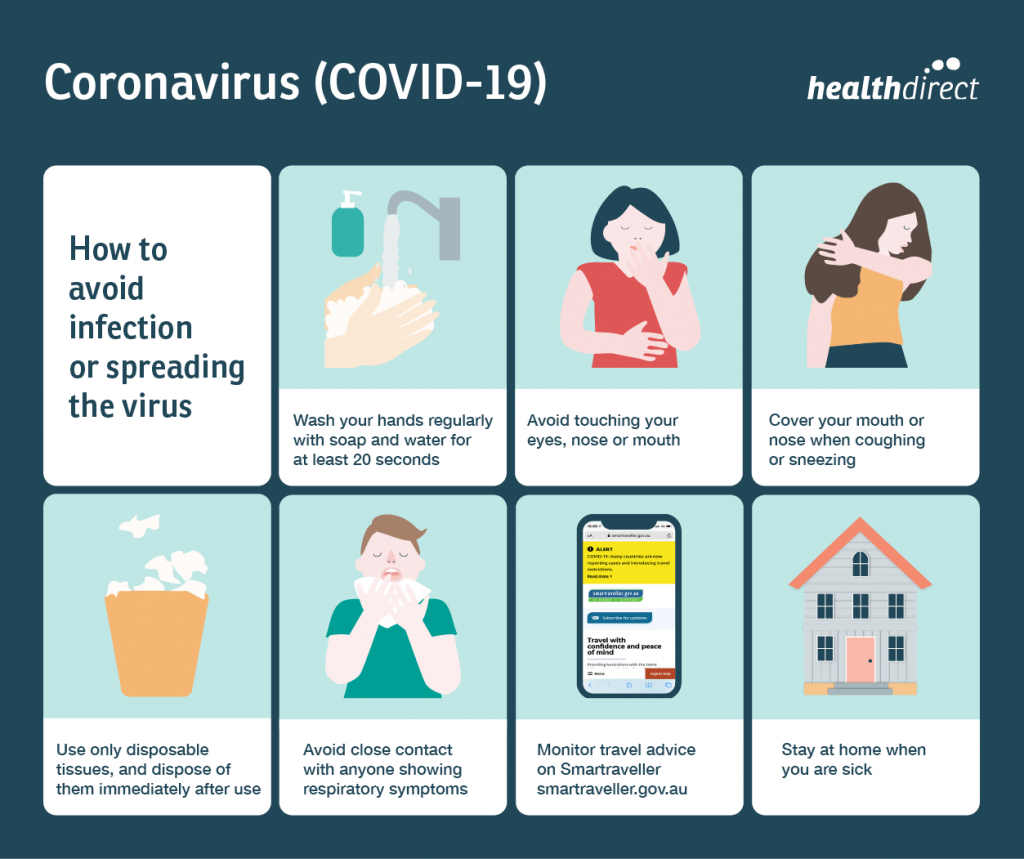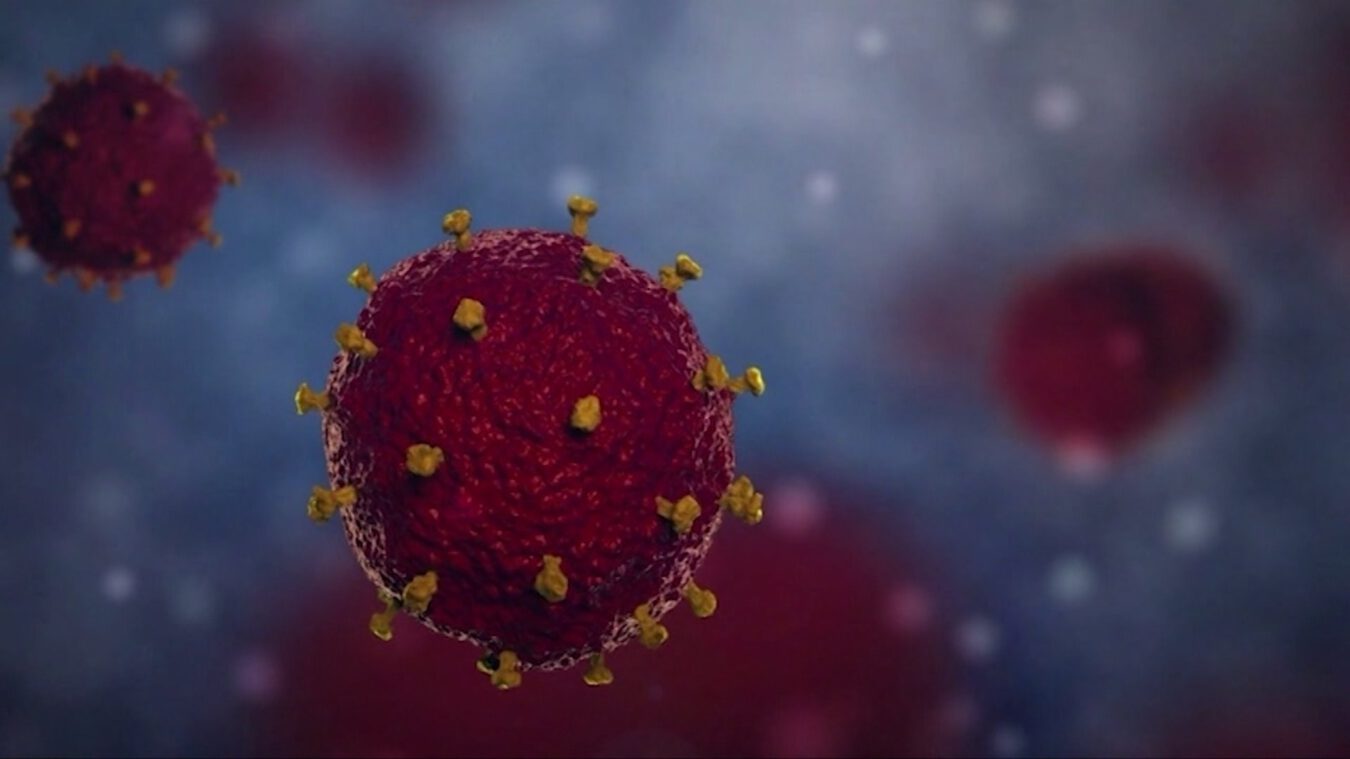The World Health Organization has declared coronavirus (COVID 19) a pandemic.
The virus which was first discovered in Wuhan China has now spread to 114 countries, has seen over 120,000 known infections and nearly 5,000 deaths at the time of writing of this post.

Whilst symptoms can seem mild for some, the virus can be deadly for high-risk groups. The most susceptible age group seem to be those over 65 years of age. People who are immunosuppressed are also at high risk.
Symptoms: The most common symptoms of COVID-19 are fever, tiredness, and dry cough. Some patients may have aches and pains, nasal congestion, runny nose, sore throat or diarrhea. These symptoms are usually mild and begin gradually. Some people become infected but don’t develop any symptoms and don’t feel unwell. Most people (about 80%) recover from the disease without needing special treatment. Around 1 out of every 6 people who gets COVID-19 becomes seriously ill and develops difficulty breathing. Older people, and those with underlying medical problems like high blood pressure, heart problems or diabetes, are more likely to develop serious illness. People with fever, cough and difficulty breathing should seek medical attention.
Australian Mercy encourages people to listen to the science-based medical advice that being offered through organizations such as the CDC and WHO. Government warnings should also be followed.
Infection figures are not available forever country but the consensus of opinion seems to be that this will get worse before it gets better. A vaccine is a year to 18 months away.
Here are 5 things that you can do in order to reduce the spread of COVID 19 in the places where you live and work.
Coronavirus tip No 1.
Take WHO and government warnings seriously.
Don’t make the mistake of thinking that it will never happen to you. Some cemeteries are full of people who thought that or were infected by people who thought that. If you are feeling unwell or are experiencing flu-like symptoms seek medical advice. Stay at home and ring your GP or seek it through the Australian government helpline for this emergency is 1800 020 080.
It is better to be told that you only have the flu than to find out much later that you have been the Typhoid Mary of your generation.
With this disease, it is important not to panic, and to follow the medical advice you are given.
Coronavirus tip No 2.
Regularly wash your hands, with soap or use sanitizer.
Germs can be picked up from surfaces, door handles etc. By regularly washing your hands you are reducing the spread of germs that are picked up by your hands when you touch surfaces that may be infected.
Keep unwashed hands away from your face, the virus cannot get through your skin but it can get into your body via your mouth, hands and eyes.
Coronavirus tip No 3.
Sneeze and cough into your arm or a tissue.
When we sneeze or cough small droplets that could be infected are released into the air and can stay there for some minutes and infect others who breathe in using that same space.
If you use a tissue, dispose of it safely.
Coronavirus tip No 4.
Regularly wipe down surfaces.
This virus lives for a long time on surfaces that it has been passed onto through other people touching them, or sneezing or coughing near the. Wipe surfaces, door handles and steering wheels. If you live or work in a place where people come and go then regularly wipe door handles and other surfaces with disinfectant wipes to kill any germs that may have been passed on.
Remember, if you are feeling unwell – self isolate for up to two weeks and get medical advice. Do not go out into public places where you might infect others.
Coronavirus tip No 5
Stop touching your face
Coronavirus is a respiratory illness. The virus is trying to get to your lungs. Your hands will most likely pick up the virus from touching infected surfaces or having infected droplets sneezed or coughed onto them.
Every time you touch your face the germs on your hands are more likely to be breathed into your lungs and you start getting sick.
Remember, if you are feeling unwell – self isolate for up to two weeks and get medical advice, (ring your doctor or government helpline, in Australia the government helpline for Coronavirus is 1800 020 080.) Try and get tested. Do not go out into public places where you might infect others.
Limit your travel. If you travel to a highly infected location you are not only at risk of the disease, but you might not be allowed back.
If you are travelling overseas, check your government travel website to ascertain the status of the country you want to travel to. If the border is closed you might not be able to get back. And ring you travel insurer to ascertain if you are insured against any coronavirus related instances that occur during your journey.
Coronavirus tip No 6
Practice social distancing
In order to slow a pandemic doctors recommend that people put more space between them and other people. This lessens the likelihood that a virus can be transmitted from one person to another. Direct contact with an infectious person is likely to spread the disease.
Health officials recommend that we practice social distancing by going out into public areas or events less and that if we are in a room with other people then we try to stay at least 1.5 meters (6 feet) away from the nearest person.
The need for social distancing is the very reason why sports events have been cancelled, and churches, schools and some workplaces closed. To stop the virus we have to reduce the opportunities for infection transmission.
The Australian government has released a fact sheet on social distancing. Social distancing is an important tool in the fight against COVID 19.
Eat well to strengthen your immune system, follow the recommended health guidelines and protocols. Stay safe.
The WHO COVID 19 information site can be found here

